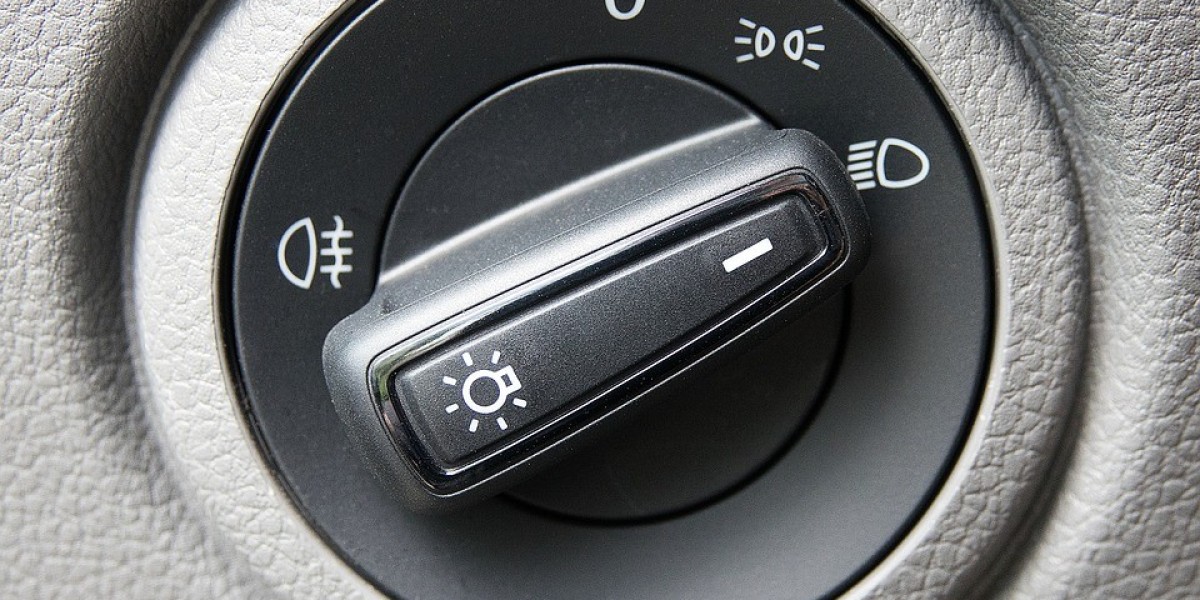In recent years, smart home technology has transformed the way we live, and one of the most popular advancements in home automation is the introduction of Smart Switches For lights. These devices allow you to control your home’s lighting with convenience, efficiency, and flexibility, using either a smartphone app, voice commands, or automated schedules.
This guide explores everything you need to know about smart light switches, including how they work, the benefits they offer, the various types available, and why they might be the perfect upgrade for your home.
1. What Are Smart Switches for Lights?
A smart switch for lights is a device that allows you to control your home lighting remotely using a smartphone app, voice assistants (like Amazon Alexa or Google Assistant), or even through automated routines. These switches replace traditional wall-mounted light switches and are designed to integrate with your smart home ecosystem, offering added convenience and enhanced energy efficiency.
Smart light switches can control a variety of lighting systems, from basic bulbs to complex lighting setups, and offer additional features such as dimming, scheduling, and energy monitoring.
2. How Do Smart Switches Work?
Smart switches for lights work by connecting to your home’s Wi-Fi or Bluetooth network. Once connected, they can be controlled via a smartphone app or integrated with a smart home platform such as Amazon Alexa, Google Assistant, or Apple HomeKit.
2.1 Wi-Fi and Bluetooth Connectivity
- Wi-Fi-Based Smart Switches: These connect directly to your home Wi-Fi network, allowing you to control your lights remotely through an app, regardless of where you are. Wi-Fi smart switches often require a stable internet connection to work seamlessly.
- Bluetooth-Based Smart Switches: These operate within a limited range, typically up to 30 feet, and require no internet connection. Bluetooth switches can be controlled directly through your smartphone when you're at home.
2.2 Integration with Smart Home Platforms
Most smart switches can be integrated with popular smart home ecosystems, enabling you to use voice commands for hands-free control. Simply ask Alexa, Google Assistant, or Siri to turn the lights on or off, dim them, or change the color.
2.3 Additional Features
- Dimming Functionality: Many smart switches allow you to adjust the brightness of your lights, creating the perfect ambiance for any situation.
- Scheduling and Automation: You can set schedules for your lights to turn on or off at specific times or trigger events based on other actions, such as when you leave home or when a motion sensor is activated.
- Energy Monitoring: Some models come with energy usage tracking, helping you monitor the amount of electricity your lights consume and optimize your lighting patterns for energy efficiency.
3. Types of Smart Switches for Lights
Smart light switches come in different styles and functions, designed to suit various lighting needs and preferences. Here are some of the most common types:
3.1 Single-Pole Smart Switches
These are the most basic type of smart switch, typically used to control a single light fixture from one location. They are the direct replacement for traditional light switches and are often the easiest to install.
3.2 Three-Way Smart Switches
If you have a setup where you control a light from two or more locations (such as at the top and bottom of a staircase), you’ll need a three-way smart switch. This allows you to control a light from multiple locations without losing the smart functionality.
3.3 Dimmer Smart Switches
Dimmer smart switches allow you to control the brightness of your lights, offering flexibility in lighting levels. Whether you're setting the mood for a cozy evening or maximizing brightness for tasks, these switches give you full control over your lighting environment.
3.4 Multi-Control Smart Switches
These switches allow you to control multiple lighting zones with a single switch. If you have several light fixtures that you want to control together, a multi-control switch can be convenient, as it replaces multiple switches with just one.
3.5 Smart Light Switch Panels
For larger, more sophisticated systems, you can opt for smart switch panels that control entire lighting circuits in a single touch. These often feature a sleek, modern design and can support advanced features like motion detection or integrated multi-light setups.
3.6 Smart Switches with Motion Sensors
Some smart switches come with built-in motion sensors, which can automatically turn the lights on or off when movement is detected in a room. This feature adds convenience and energy savings, as it ensures that lights are only on when the room is in use.
4. Benefits of Smart Switches for Lights
Smart switches for lights offer a variety of advantages over traditional light switches. Here are some of the top benefits:
4.1 Convenience and Control
The most significant advantage of smart switches is convenience. You can control your lights remotely from anywhere using your smartphone, whether you’re lounging on the couch or away on vacation. Additionally, integration with voice assistants allows for hands-free control, making it even easier to adjust lighting without lifting a finger.
4.2 Energy Efficiency
Smart switches can help you save energy by allowing you to set schedules and automatically turn off lights when they are not needed. Many smart switches also provide insights into energy consumption, helping you make more informed decisions to reduce electricity use.
4.3 Enhanced Security
Using smart switches, you can create schedules that turn your lights on and off while you're away, making your home appear occupied to potential intruders. This added layer of security helps you maintain peace of mind, especially when you’re not home for extended periods.
4.4 Customizable Lighting Experience
Smart switches allow you to customize your lighting experience. With dimming options, adjustable schedules, and the ability to create different lighting scenes, you can ensure that your home always has the perfect lighting for any occasion.
4.5 Future-Proofing Your Home
As more smart home devices become available, having smart switches for lights ensures that your home is ready for further integration. These switches are compatible with a wide variety of smart home platforms, making them an easy way to begin building a connected home.
5. Installation of Smart Light Switches
Installing smart light switches is relatively simple, though it requires basic knowledge of electrical work. Here’s a brief overview of the installation process:
5.1 Safety First
Before starting, make sure the power to the circuit you’ll be working on is turned off at the breaker panel. Safety is crucial when working with electricity.
5.2 Remove the Existing Switch
Start by unscrewing the cover plate of the existing light switch. Then, remove the switch from the wall and disconnect the wires.
5.3 Wire the Smart Switch
Follow the manufacturer’s instructions to wire the smart switch. Most smart switches will require you to connect the live wire, neutral wire, and ground wire.
5.4 Mount the Switch
Once wired correctly, mount the switch back into the electrical box and screw it in place. Reattach the cover plate.
5.5 Set Up the App
After installation, download the corresponding app for your smart switch, follow the pairing instructions, and set up the switch. You may need to connect it to your home Wi-Fi or Bluetooth network.
6. Conclusion: Why Choose Smart Switches for Lights?
Smart switches for lights offer an easy and convenient way to elevate your home’s lighting system. With benefits ranging from energy savings and enhanced security to customizable lighting options, these devices are a smart investment for anyone looking to bring their home into the modern era.
The ease of control, whether through your smartphone, voice commands, or automation, makes smart switches a must-have for those who value convenience and efficiency. Whether you are looking to improve the ambiance of your living space, save energy, or add an extra layer of security, smart switches for lights are an excellent solution that enhances both your home’s functionality and your quality of life.
If you’re ready to take the next step towards transforming your home into a smart, connected space, upgrading your lighting system with smart switches is a great way to start.








